African Artists and Social Justice: Art as a Catalyst for Change
It is said that art has the power to move mountains, but when it comes to the works of African artists, it appears to move societies and the very fabric of our collective consciousness. Steeped in rich history and diverse cultural influences, African art has long served as a mirror to the continent’s complex and often tumultuous past. However, beyond its aesthetic value and historical significance, art in Africa has emerged as a potent force in the ongoing struggle for social justice.
As the world grapples with issues of inequality, prejudice, and environmental degradation, African artists have emerged as eloquent and fearless champions of change. By wielding their brushes, chisels, and cameras, these creative visionaries have not only captured the zeitgeist but also catalyzed change by highlighting and addressing pressing social issues. This journal seeks to explore the profound impact of African art as a catalyst for social justice, delving into the works of prominent artists, the challenges they face, and the indelible mark they leave on the global stage.
The relationship between African art and social justice
Art has always been an integral part of African culture, serving as a conduit for communication, education, and social commentary. In the context of social justice, African art has assumed an even more critical role, becoming a vehicle for change and a platform for marginalized voices to be heard. By unearthing buried narratives and shedding light on the darker corners of society, African artists have masterfully harnessed the power of art to challenge the status quo and inspire action.
The role of art in raising awareness about social issues cannot be overstated. For instance, in countries grappling with political upheaval, civil unrest, and economic inequality, artists have bravely depicted these realities, often at great personal risk. Through their works, they have fostered empathy and understanding, bridging the gap between disparate communities and fostering dialogue about pressing concerns.
One such example is South African artist Zanele Muholi, whose arresting photographic portraits document the experiences of the LGBTQ+ community in her native country. Muholi’s work has been instrumental in challenging the pervasive stigma surrounding LGBTQ+ individuals and raising awareness about the unique challenges they face.
Art has also served as a medium for protest and resistance, with artists using their craft to challenge oppressive regimes and fight for justice. During the apartheid era in South Africa, for instance, artists such as Willie Bester and Sue Williamson created powerful works that denounced the injustices of the racist regime, contributing to the growing international outrage that ultimately led to apartheid’s demise.
Furthermore, the impact of African art on public opinion and policy-making cannot be ignored. Many African artists have used their work as a platform to engage with politicians, community leaders, and international organizations, advocating for policy changes and raising funds for social justice causes. As a result, African art has transcended the realm of the purely aesthetic, becoming an indispensable tool in the global fight for justice.
Prominent African artists and their contributions to social justice
African artists have long been at the forefront of the social justice movement, using their unique perspectives and creative prowess to advocate for change. In this section, we will explore the contributions of several prominent African artists whose work has resonated both within and beyond the continent.
Kehinde Wiley: Nigerian-American artist Kehinde Wiley is celebrated for his striking, large-scale portraits of Black individuals, often depicted in the style of European Old Masters. By replacing historical figures with contemporary Black subjects, Wiley’s work challenges traditional notions of power, privilege, and representation in art. His groundbreaking portrait of former U.S. President Barack Obama, for instance, serves as a powerful symbol of racial progress and representation in the highest echelons of power. Wiley’s work has resonated with audiences around the world and has contributed to ongoing dialogues about race, identity, and social justice.
Esther Mahlangu: A celebrated South African painter, Esther Mahlangu is renowned for her bold, colorful, geometric designs inspired by the traditional art of the Ndebele people. Mahlangu’s work not only preserves and promotes Ndebele culture but also challenges gender stereotypes by empowering women in a traditionally male-dominated art form. As a pioneering female artist, Mahlangu’s work has inspired a new generation of women to express themselves through art and contribute to social change.
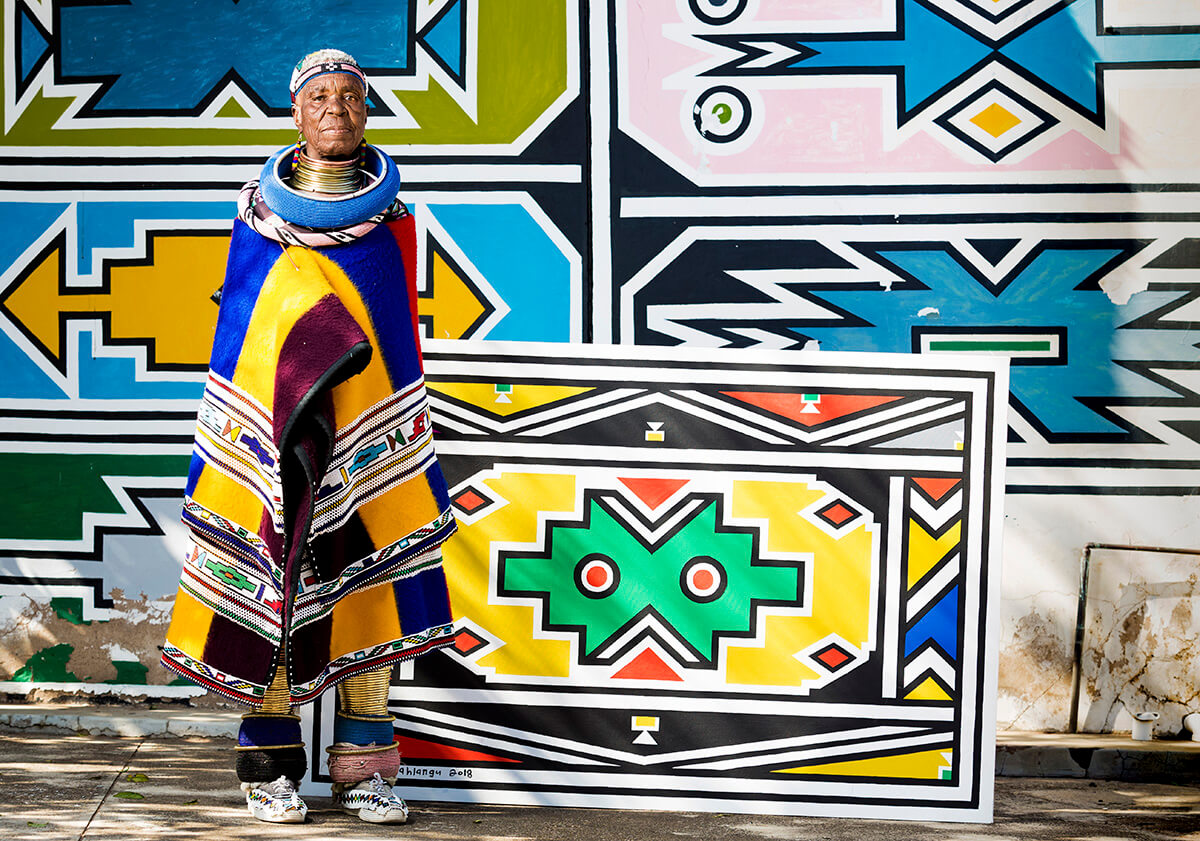
Gonçalo Mabunda: Hailing from Mozambique, Gonçalo Mabunda is a sculptor who creates arresting, politically charged works using decommissioned weapons collected from his country’s 16-year-long civil war. By repurposing the remnants of conflict into intricate, thought-provoking sculptures, Mabunda explores themes of peace, reconciliation, and the power of art to heal the wounds of war. His work serves as a stark reminder of the devastating impact of armed conflict on communities and individuals, while also offering a hopeful vision of a more peaceful future.
Wangechi Mutu: A Kenyan-born, Brooklyn-based artist, Wangechi Mutu is known for her captivating multimedia collages that address issues of race, gender, and colonialism. By combining found materials such as magazine clippings, glitter, and paint, Mutu creates otherworldly, powerful images that challenge conventional representations of Black women and African culture. Her work has garnered international acclaim and has played a vital role in broadening conversations about identity, representation, and social justice.
Yinka Shonibare: A British-Nigerian artist known for his vibrant, thought-provoking installations, Yinka Shonibare explores themes of colonialism, identity, and globalization through his work. By incorporating brightly colored, intricately patterned African fabrics into sculptures and installations that reference European art and history, Shonibare highlights the complex cultural interplay between Africa and the West. In doing so, he challenges viewers to confront the legacy of colonialism and consider its lasting impact on contemporary society.
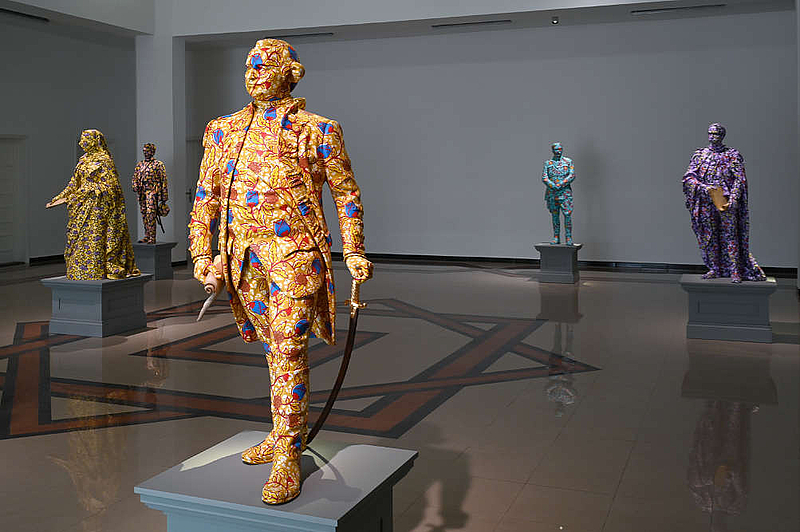
Zanele Muholi: As mentioned earlier, South African artist Zanele Muholi is a trailblazer in the realm of LGBTQ+ representation in art. Through intimate and powerful photographs, Muholi documents the lives and struggles of the LGBTQ+ community in South Africa. By giving a voice and a platform to a marginalized and often invisible community, Muholi’s work has helped to raise awareness of the unique challenges faced by LGBTQ+ individuals in Africa and has contributed to ongoing conversations about equality and acceptance.
El Anatsui: Renowned for his striking, large-scale installations made from discarded materials such as bottle caps and aluminum cans, Ghanaian artist El Anatsui addresses pressing environmental concerns through his work. By transforming everyday waste into intricate, shimmering tapestries, Anatsui not only raises awareness about the issue of waste and environmental degradation but also challenges conventional notions of value and beauty. His work serves as a powerful reminder of the interdependence between humans and the natural world and the importance of environmental stewardship.
William Kentridge: South African artist William Kentridge is known for his innovative and evocative multimedia works that explore themes of memory, history, and the legacy of apartheid. Through a combination of animation, drawing, and performance, Kentridge brings to life the complex and often painful experiences of South Africans under apartheid, contributing to the broader discourse surrounding race, power, and social justice.
The role of African art in inspiring global social justice movements
As African art has gained recognition on the world stage, it has also played a significant role in inspiring and shaping global social justice movements. From the Black Lives Matter movement to environmental activism, African art has left an indelible mark on the way we think about and engage with social justice issues.
The influence of African art on the Black Lives Matter movement is particularly noteworthy. The bold, striking visuals and powerful messages of African artists have resonated with activists fighting for racial justice and equality in the United States and beyond. By emphasizing the shared struggle against systemic racism and injustice, African art has helped to galvanize a global movement for change.
Environmental activism is another area where African art has made a significant impact. Through visually arresting works that address pressing ecological concerns, African artists have inspired activists around the world to confront the urgent need for environmental preservation and sustainable development.
The spread of African art and its impact on international discussions about social justice is yet another testament to its transformative power. As more and more African artists gain recognition and influence, their work has the potential to reshape global conversations about social justice and inspire action on a truly global scale.
Challenges faced by African artists in promoting social justice
Despite their significant contributions to social justice, African artists often face numerous challenges in their quest to effect change. From censorship and political repression to limited resources and access to international platforms, these artists must navigate a complex and often inhospitable landscape in their pursuit of justice.
Censorship and political repression are among the most significant obstacles faced by African artists. In many countries, artists who dare to challenge the status quo or criticize the government may face severe consequences, including imprisonment, harassment, and even violence. These harsh realities often force artists to self-censor or risk their safety in the name of their art and the social justice causes they champion.
Limited resources and access to international platforms also pose significant challenges to African artists. Many artists struggle to secure funding for their projects or to gain exposure outside their local communities. As a result, their work may not reach the broader audience it deserves, limiting its potential impact on social justice issues.
Finally, the danger of tokenism and commodification of social justice art is a real concern. As the art world increasingly embraces works that engage with social justice themes, there is a risk that the art itself becomes oversimplified or reduced to mere slogans, undermining the artists’ original intentions and diluting the message. In order to truly appreciate and support African artists in their fight for social justice, it is crucial to engage with their work in a thoughtful and critical manner, rather than merely consuming it as a fashionable trend.
In the ever-evolving landscape of contemporary art, African artists have emerged as powerful agents of change, using their creative talents to tackle pressing social justice issues and inspire action on a global scale. From Yinka Shonibare’s exploration of colonialism and identity to Zanele Muholi’s groundbreaking documentation of the LGBTQ+ experience in South Africa, these artists have demonstrated the transformative power of art as a catalyst for change.
Despite the numerous challenges they face, African artists continue to push the boundaries of artistic expression and social commentary, leaving an indelible mark on the world stage. As we bear witness to the incredible work of these creative visionaries, it is our responsibility to support and amplify their voices in the ongoing fight for a more equitable and just world.
In conclusion, African artists’ role in promoting social justice through art as a catalyst for change is undeniable. Their ability to capture the essence of social struggles and communicate them to a global audience serves as a testament to the power of art in shaping our collective consciousness. As we continue to grapple with issues of inequality and injustice, it is essential that we recognize and celebrate the vital contributions of African artists in our pursuit of a fairer and more compassionate world.

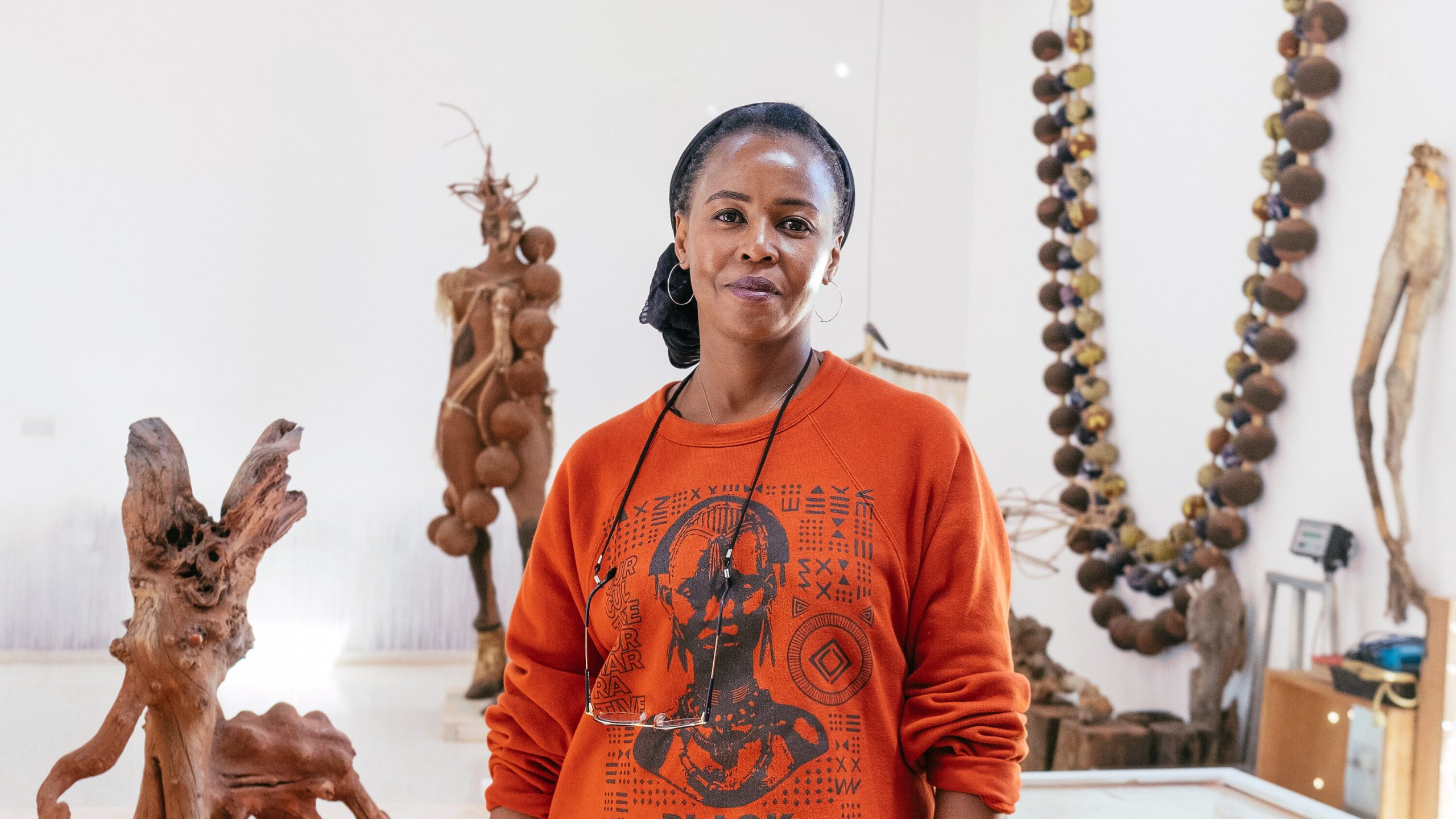
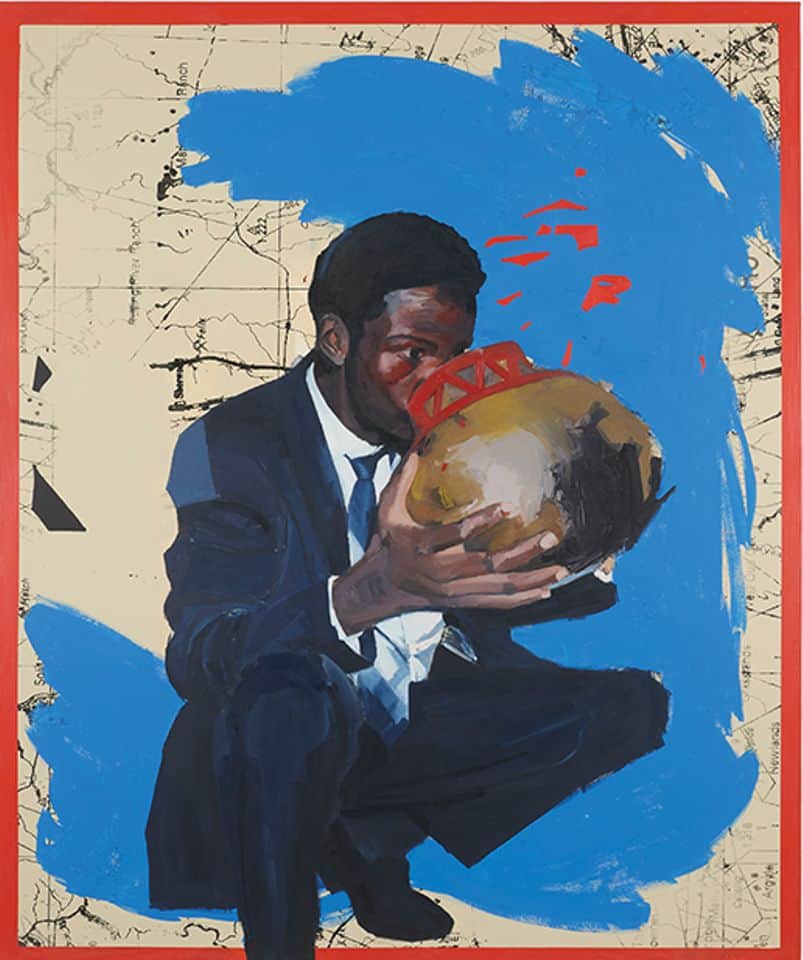
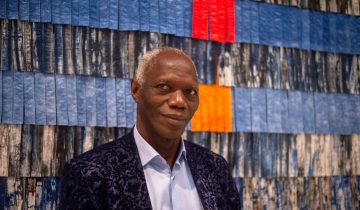
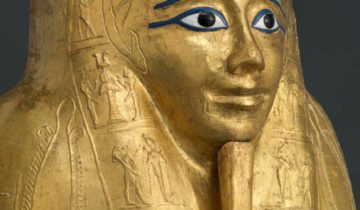
 No products in the basket.
No products in the basket.